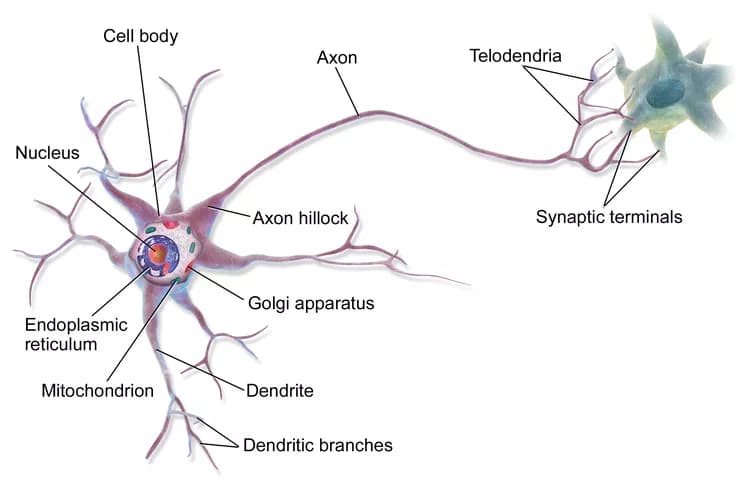
Better Genetic Decoding Of Neurodevelopmental Disorders
A key question in biology is understanding how the brain works. Its basic working units, the neurons, transmit information in the form of electrical impulses and chemical signals. Alterations in the function of the neurons can lead to neurological and psychiatric disorders. Neurodevelopmental disorders (NDDs) are a group of frequent and often severe pediatric conditions that can manifest, for example, as intellectual disability, autism or early-onset psychiatric symptoms. The recent development of higher resolution genetic diagnostic tools has underlined the prevalence of genetic anomalies, such as copy number variations (for example, loss of a gene), in children with NDDs.
Two HUDERF patients with neurodevelopmental disorders (here cognitive and behavioral symptoms) showed partial loss (deletion) of the DLG2 gene, which plays an important role in the development, plasticity, and stability of synapses (the zone where two neurons touch each other allowing them to exchange information).
A research team led by Dr. Guillaume Smits, Nicolas Deconinck and Catheline Vilain of HUDERF and Professor Gianluca Bontempi of ULB (Machine Learning Group) collaborated through the Interuniversity Institute of Bioinformatics in Brussels, (IB) ², a joint research institute at the Université libre de Bruxelles (ULB) and the Vrije Universiteit Brussel (VUB). Together, they worked at integrating large genomic, epigenomic, transcriptomic and clinical datasets. The computational experiments, performed by Claudio Reggiani, a PhD student funded by the Belgian Kids' Fund for Pediatric Research and Innoviris, pinpointed two novel DLG2 promoters and coding exons conserved in human and mouse and present in the fetal brain. The deletion of these new regions were found statistically associated with developmental delay and intellectual disability in two independent patient cohorts, supporting the pathogenic role of these new elements into the neurodevelopmental symptoms of both HUDERF patients. The results of this work have been published in the international journal Genome Medicine and are presented in this video.
From a medical perspective, the findings will help medical doctors in improving future diagnosing of children with NDDs, intellectual disability, autism and schizophrenia. From a scientific point of view, this work shows how the in silico integration of multiple large datasets can bring knowledge about the genome. It also provides elegant progress into the molecular cause of neurodevelopmental disorders and improves fundamental knowledge about the DLG2 gene.
Materials provided by Université libre de Bruxelles. Note: Content may be edited for style and length.
Disclaimer: DoveMed is not responsible for the accuracy of the adapted version of news releases posted to DoveMed by contributing universities and institutions.
References:
Claudio Reggiani, Sandra Coppens, Tayeb Sekhara, Ivan Dimov, Bruno Pichon, Nicolas Lufin, Marie-Claude Addor, Elga Fabia Belligni, Maria Cristina Digilio, Flavio Faletra, Giovanni Battista Ferrero, Marion Gerard, Bertrand Isidor, Shelagh Joss, Florence Niel-Bütschi, Maria Dolores Perrone, Florence Petit, Alessandra Renieri, Serge Romana, Alexandra Topa, Joris Robert Vermeesch, Tom Lenaerts, Georges Casimir, Marc Abramowicz, Gianluca Bontempi, Catheline Vilain, Nicolas Deconinck, Guillaume Smits. (2017). Novel promoters and coding first exons in DLG2 linked to developmental disorders and intellectual disability. Genome Medicine. DOI: 10.1186/s13073-017-0452-y
Related Articles
Test Your Knowledge
Asked by users
Related Centers
Related Specialties
Related Physicians
Related Procedures
Related Resources
Join DoveHubs
and connect with fellow professionals

0 Comments
Please log in to post a comment.